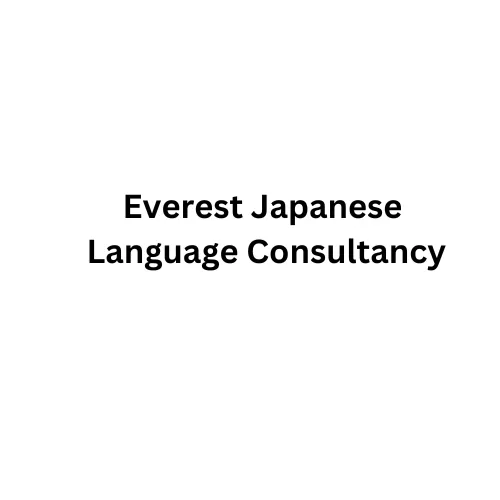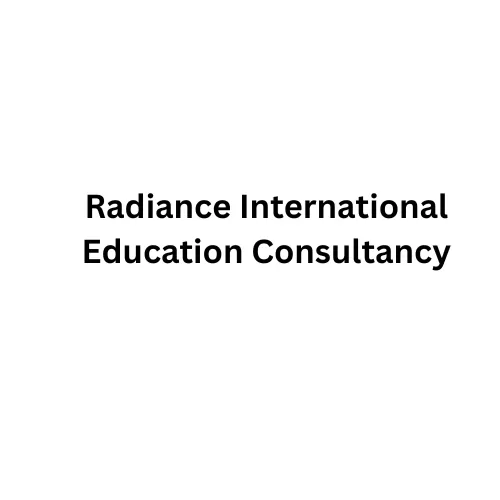Japan
Why Study in Japan?
Japan is called the Land of the Rising Sun, because the early sunrise of the day is first seen in Japan before other parts of the world. It is an island country in East Asia. It has five main islands: Hokkaido, Honshu, Shikoku, Kyushu and Okinawa. It has eight largest exclusive economic zones in the world. The head of the state is Emperor and Empress of Japan.
There are different higher education Colleges and Universities of Japan for national and international students. There are 86 national Universities, 95 local public Universities, vocational schools, technology College, special training institutes in Japan for specially abled students.
For many international students Japan provides cultural immersion. Students have academic and professional connections while they are studying the academic programs. The unique teaching which blends traditional, innovative and societal expectations, continental models and reforms, and the aging population apply their experiences, knowledge and findings into the teaching pedagogy which is a refined way of understanding. Interaction between students and professors in Japan is respectful.
Education is compulsory in Japan. Infacts Japan is one of the top countries among OECD Countries for Mathematics, Science and Literacy. Education system in Japan is tiered according to:
- Elementary schools
- Junior high schools
- High Schools
- Junior Colleges
- Four years Colleges and Universities
Japan has some top QS ranking Universities in the world. Japanese people are also equally competent in sports and games like martial arts, video games,anime etc.
Key Facts to Study in Japan for Nepalese Students
Here are some of the main reasons to study in Japan:
- Modern and innovative approach of education from the best Universities in Japan.
Higher education in Japan is offered by QS and other popular Universities to students in Japan for Bachelor, Master, Doctoral and professional degrees. Japan is best to study courses in Science and Technology, Data Science, Humanities, Japanese Language, Liberal Arts.
- Land of successful scholars, business tycoons and researchers
Japan is a place of birth for scholars, researchers and business tycoons. Notable scholars were Minoru hara Ogyu Sorai, etc top researchers Shizou Akira, Yusuke Nakamura, Tadamitsu Kishimoto. Top business tycoons Masayoshi Son, Tadashi Yanai, Shigenobu Nagamori etc.
- Best manufacturer of automobiles, electronic goods
Japan has ten best manufacturing companies in the world. We have already used the product under brand names like Sony, Sharp, Toshiba, TDK, Mitsubishi electric, NEC CORP, Panasonic etc. In the Automotive sectors there are Toyota, Suzuki, Honda, Daihatsu, Nissan whose invention started from Japan.
- Natural beauty along with rich Japanese culture and popular dishes
Japan is rich in their authentic food as they are rich in Japanese traditions and cultures. One of the most celebrated exports of Japan is Green tea. The most enjoyable foods are Sushi, tempura, ramen, and miso soup. Japanese dress like Kimono, tea ceremony, movies, kabuki, bowing, Japanese gardens are also some aspects of popular Japanese cultures and traditions.
- Safe and clean country with the best public transportations in the world
With the country's culture and modern infrastructures Japan is one of the cleanest countries. It has wastewater treatment of 74.8 percent. Japan is currently the safest country in the world with violent crime rates of only 03 per 1000. Some precautions are there which must be adopted in night life like never leave drinks unattended. There are natural disasters like typhoons, earthquakes and avalanches. Also discretion is warranted from those who ask for personal information in Japan.
- Good employment opportunities and part time jobs also for students:
There are full time and part time jobs available in Japan based on students skills and academic knowledge. There are popular part time jobs in warehouses, factories, restaurants, hotels, and cleaning services. Full time jobs for qualified professionals like English teaching jobs, Assistant of business development team, Tesla high class uber driver, Executive Assistant, Quality Management, teaching assistant, senior sales executive, customer service representative, travel designer etc.
- Cost of education programs:
Many of the Japanese Universities offer low tuition fees. Some of those have affordable tuition fees, however private international academic degrees can be expensive in Japan. There are scholarships for international students in Japan which provide a monthly stipend for post graduate studies and research work. There are part time job options for international students also. Along with education Japan have an affordable yet high standard of living.
Top Universitites In Japan For Nepalese Students
Here are the Top Universities to Study in Japan
| Universities | City |
| Kyoto University | Kyoto |
| The University of Tokyo | Bunkyo City, Tokyo |
| Tokyo Institute of Technology | Meguro City, Tokyo |
| Yokohama National University | Yokohama, Kanagawa |
| Hokkaido University | Sapporo, Hokkaido |
| Osaka University | Suita, Osaka |
Requirements in Japan for Nepalese Students
For student VISA qualifications:
- Academic background minimum above Plus 2/intermediate and above
- Age Plus2 passed until 24 years, Bachelor passed until 28 years, Master passed until 32 years can apply for student visa in Japan.
- Copies of academic transcript and character certificate
- Photocopy of original passport size certificate
- Essay covering purpose of study in Japan
- Recommendation letter from the Campus or workplace
- Other document
- GAP certificate
- Original citizenship copy translated in English
For documents certifying sponsor:
- Sponsor letter
- Birth Certificate with photo
- Tax clearance certificate
- Annual income certificate
- Verification of business and income letter
- Recommendation letter
- Other certificate document
- Property valuation document documents required for issuing from 2-3 weeks of application date.
Language proficiency:
Japanese Language proficiency requirements called JLPT Level N2 or higher for University degrees.
Admission criteria:
As per the Embassy of Japan in Nepal outlines, following are the admission criteria requirements:
- Filled application form
- Field of study and research plan
- Recommendation forms
- Notarized copy of academic transcripts
- Notarized copy of citizenship certificate
Financial proof:
- Proof to show the international student have sufficient fund to study in Japan cover these facts:
- Bank statement covering 2 Million yen of study cost for one year
- Official bank statement for the last three months with a current balance
- Annual income certificate for past three years
- Tax clearance certificate for three years
- Proof of scholarship or financial aid received by the student
Health insurance for students in Japan
Some Universities of Japan have their own health insurance coverage. The National Insurance Card will be required to show at the time of the treatment at hospitals in Japan. Only 30 percent of total cost has to be paid after this card is used to treat health checkups in Japan and also for medication and pharmacy stores for healthcare.
Intakes in Japan for Nepalese Students
| Intakes | From | Deadlines |
| Spring Intake | April to March | October till November |
| Summer time | July to September | February till April |
| Fall Intake | September to March | April till July |
There are three intakes opened by Colleges and Universities for admissions in their academic programs. The intakes are Spring, Summer and Fall seasons and deadlines for applying for Spring intake is October till November, Summer intake from February till April and Fall intakes April till July.
Living Expenses in Japan for Nepalese Students
Here are the summary of expenditures per month for international students who are living in Japan for their studies:
| Lists | Amount in Yen |
| Food | 15500 to 46500 Yen per month |
| Transportation | 2200 to 15000 Yen per month |
| Housing | 43300 to 60000 Yen per month |
| Entertainment | 400 to 3000 Yen per month |
| Miscellaneous | 3000 Yen per month |
| Utilities | 3000 to 3500 Yen per month |
Monthly rental and eating are two major expenditures for international students in Japan. Transportation by public vehicles are in the range between 2200 to 15000 Yen, entertainment and miscellaneous expenses in Japan for an international student is 3000 Yen per month when calculated.
Tuition Fees and Scholarships in Japan for Nepalese Students
Here are some of the names of University and cost of all programs per year tuition fees cost range for Nepalese students who have gone and studied in Japan:
| Universities | Amount in Yen |
| Kyoto University | 535800 Yen per year |
| The University of Tokyo | 535800 Yen to 858600 Yen per year |
| Tokyo Institute of Technology | 635400 Yen per year |
| Yokohama National University | 535800 Yen per year |
| Hokkaido University | 356400 Yen to 535800 Yen per year |
| Osaka University | 282000 Yen to 804000 Yen per year |
Each year is of two semesters of six months each and for above Universities the costs of academic programs differ in price for every faculty and University wise allocation of cost structuring. Per year cost bracket of 6 most selected Japanese Universities by Nepalese students for UG and PG degrees are mentioned in the table above:
Scholarship
There are many scholarships provided from different institutions for funding the cost of international students' education in Japan. Some of the popular scholarship programs are:
- Fully funded MEXT scholarship for undergraduate, Masters, PhD and training studies
- Honjo International scholarship foundation
- NIG Postdoctoral Fellowship
- Joint Japan world bank graduate scholarship program
- Rotary peace fellowship
- The Japan ADB scholarship
- Research Fellowship for young scientist
- METI government of Japan internship program
Work Opportunities in Japan for Nepalese Students
If you have a right education qualification that matches the skill and requirement of job in Japan then it is good news. There are around 40/50 percent Companies in Japan looking for skilled manpower in their job positions. After you have found full time employment you can switch from student to work Visa. You can also take the help of recruitment agencies to help you get through the right jobs in Japan.
Some career fields are:
- Teaching
- Information Technology
- Research and Development
- Services and hospitality
- Business and Finance
- Hospitality Staff
- Caretaker
- International organizations in Japan
Top University of Japan
| Location | University | Student |
|---|











